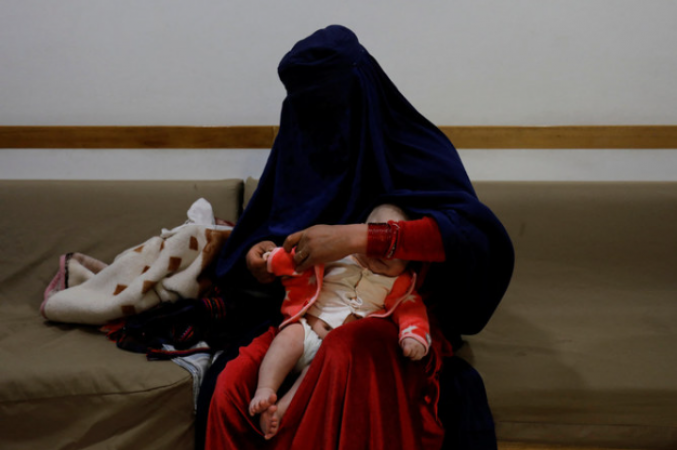
UNO: The UN representative in Afghanistan issued a warning on Wednesday that the Taliban government's crackdown on women's rights is likely to result in a reduction in aid and development funding to the nation, where women face as much exclusion from public life. There is as much fear as violent death.
According to Roza Otunbayeva, the United Nations has made its largest country aid appeal in history, seeking $4.6 billion in 2023 to provide aid to Afghanistan, where two-thirds of the population, or about 28 million people, are at risk of survival. depend on it. ,
However, she informed the United Nations Security Council that the Taliban administration's restrictions on women attending high schools and universities, visiting parks, and working for aid organizations had put that aid at risk. There is also a ban on women leaving the house.
Also Read: Swarm of earthquakes at Alaskan volcano may indicate impending eruption
According to Otunbayeva, if women were banned from working, funding for Afghanistan would probably be reduced. "If the amount of aid is reduced, the amount of US dollar cash shipments needed to support that aid will be reduced."
She claimed that because of the sanctions, discussions had stalled about offering more development-style aid for things like small infrastructure projects or laws to deal with the effects of climate change.
With a contribution of more than $1 billion, the US led all donors to the 2022 UN assistance plan for Afghanistan. Responding to a question about possible cuts, Ned Price, a spokesman for the US State Department, said Washington is examining the effects of the ban on aid delivery and is working closely with the United Nations.
According to Price, the US wanted to make sure "the Taliban are under no illusion that they can have it both ways, that they can fail to fulfill the commitments they have made to the people of Afghanistan. ..and not have to face the consequences." International community."
Also Read: A Utah traffic stop is captured on video with a barrage of gunfire.
The Taliban government claims that it protects women's rights according to a strict interpretation of Islamic law. The Taliban government came to power in August 2021 as US-led forces pulled out of Afghanistan after 20 years of war.
Lana Nusseibeh, the UN ambassador to the United Arab Emirates, claimed that they routinely deny women and girls access to their basic human rights. These options risk deepening Afghanistan's isolation from the rest of the world and have nothing to do with Islam or Afghan culture.
While some Afghan women initially claimed that they welcomed the Taliban's coming to power because it ended the war, Otunbayeva claimed that they soon lost hope.
At a Security Council meeting on Afghanistan, held on International Women's Day, Otunbayeva said, "They say that their elimination from public life is no better than the fear of a violent death.
Also Read: Will Xi be influenced more moderately by China's next leader?
In terms of women's rights, she claimed that Afghanistan under the Taliban was still the most repressive country in the world. It is difficult to understand how any government in name can govern against the needs of half its population.